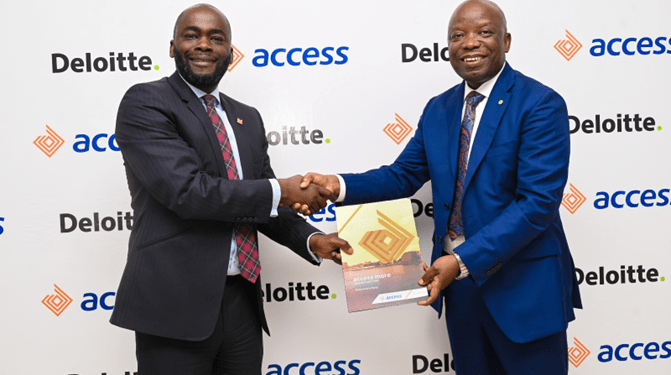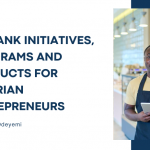In a country where small businesses often grapple with inconsistent policies, inflation, poor infrastructure, and limited access to finance, Access Bank, Nigeria’s largest financial institution, is positioning itself as a transformative force for SMEs across the nation.
In its latest stride toward SME empowerment, Access Bank partnered with global consulting giant Deloitte to host the SME Business Clinic in Lagos. Themed “Building a Resilient, Profitable and Future-Ready Business in Nigeria,” the clinic provided tailored advisory services and strategic tools to help entrepreneurs navigate Nigeria’s complex business landscape.
Abiodun Olubitan, Group Head of SME Banking at Access Bank, emphasized that the bank’s SME strategy is anchored on three pillars: access to finance, access to information, and access to market opportunities.
“Access Bank aims to support SMEs not only with financial resources but also with expert guidance to help them overcome challenges, especially during periods of policy or economic uncertainty,” Olubitan said.
The clinic featured one-on-one business consultations delivered by Deloitte experts, giving participants practical insights into areas such as financial planning, growth strategy, and regulatory compliance.
Olubitan further noted that the bank has developed a tiered support model designed to cater to businesses at all stages—from nano and micro enterprises to growing SMEs and more established corporates.
“We understand that emerging businesses might not always qualify for large loans. That’s why we’ve introduced flexible financing products, including collateral-free loans based on cash flow and sales history,” she explained.
The initiative reflects the bank’s recognition of the strategic importance of SMEs, which contribute over 51% to Nigeria’s GDP and represent the backbone of the nation’s economic activity.
Rob Giles, Senior Banking Advisor for Retail Banking at Access Bank, added that the bank’s goal is to ensure businesses are “finance-ready” before seeking funding.
“We prioritise lending that drives real growth. Our financing approach focuses on helping businesses acquire income-generating assets or secure working capital to keep operations running efficiently, even in high-interest environments,” Giles said.
Representing Deloitte, Toluwalogo Odutayo, Partner in Tax and Regulatory Services, reiterated the importance of information access for business success.
“We’ve seen many businesses fail simply due to a lack of actionable knowledge. Our collaboration with Access Bank aims to close that gap, offering SMEs structured advice on financial planning, compliance, and scalability,” she said.
Participants lauded the initiative for its practicality and relevance. Simon Kennedy, of Enable Integrated International Services, remarked that the clinic introduced him to banking solutions previously unknown to him.
“Access to finance and relevant information is crucial. This initiative is a significant step forward for SMEs in Nigeria,” Kennedy said.
He also pointed to global economies like the U.S., China, and India, where SMEs are major drivers of economic growth, suggesting that Nigeria could follow a similar trajectory with the right support systems.
Ogechi Eze, founder of Oges Closet and Hair Hub, praised Access Bank for its consistent support over the years.
“As a long-time client, I can say Access Bank has always been supportive. This business clinic has given me a clearer view of how to grow sustainably. It will greatly enhance the success of my business,” she noted.
Now in its second physical edition, the SME Business Clinic is part of Access Bank’s broader efforts to promote financial inclusion, business literacy, and long-term sustainability among Nigeria’s entrepreneurs.










